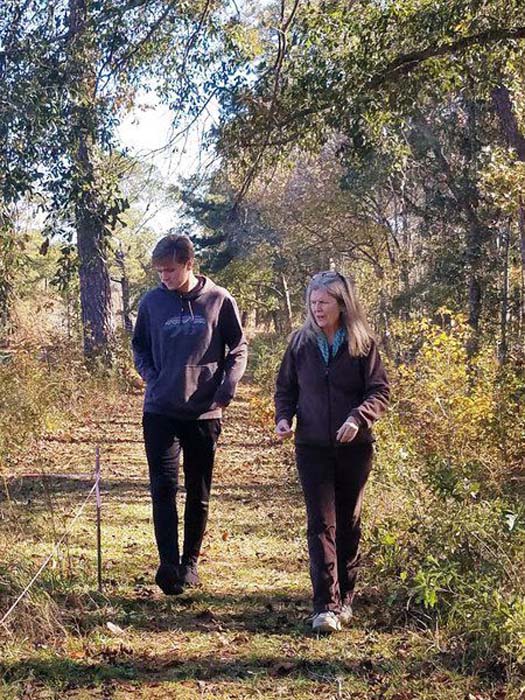TU introduces new Natural Resource and Conservation Management degree
Published 11:41 am Tuesday, February 25, 2020

- Submitted photoBecause of Thomasville’s location in the Red Hills Region of South Georgia and North Florida, students in Thomas University’s bachelor’s degree in Natural Resource and Conservation Management program have the opportunity for hands-on experience in the field.
Beginning in the fall of 2020, Thomas University students can earn a bachelor’s degree in Natural Resource and Conservation Management. The program is designed to give students a background in biological, environmental and geospatial topics necessary for decisions in resources and conservation management.
Students can participate in both class projects and internships giving them hands-on opportunities. Embedded in the program is TU’s Geospatial Analysis Planning and Preservation (GAPP) Center, which features state-of-the-art geographic information system (GIS) and global position system (GPS) technology. Students can participate with other undergraduate researchers on the local, regional and national levels for a unique field experience.
“Thomas University lies in the heart of the Red Hills Region of North Florida and South Georgia,” said Elizabeth Harrell, assistant professor of biology. “As an ecologically rich biohub, we are honored to offer the Natural Resource and Conservation Management Degree to serve the multitude of landowners, plantation owners and managers, and conservationists. Our students are knowledgeable in plant and animal diversity, local ecological conservation practices, environmental and water chemistry, as well as specialized training in geospatial science and remote sensing.”
Conservationists protect and sustain the world’s natural resources for future generations. Students interested in the Natural Resources and Conservation Management Program at Thomas University will be provided with the academic background and professional training to pursue careers in the rapidly growing field of natural resources and conservation. Natural resource conservation is a multi-disciplinary field that integrates rigorous academic training in the natural, conservation and geospatial sciences. The student will solve complex conservation problems through a hands-on interdisciplinary approach. This degree provides a challenging and rewarding experience while simultaneously preparing the student for careers in resource planning, management, conservation, restoration and education within the field of natural resources.
“Students are encouraged to serve in internship opportunities in the community in order to foster partnerships, train and educate responsible resource managers and to ensure the conservation of the Red Hills and biosimilar regions for this and future generations,” Harrell continued.
For more information on the program, visit thomasu.edu/majors/bachelor-degrees/natural-resources-conservation/.




